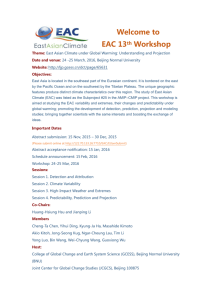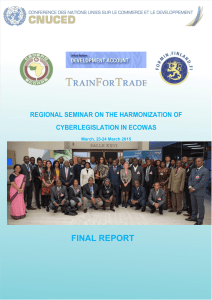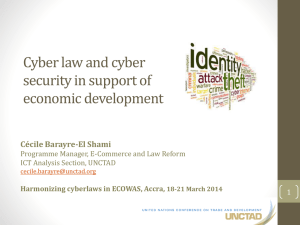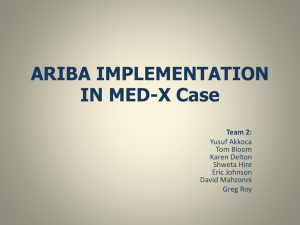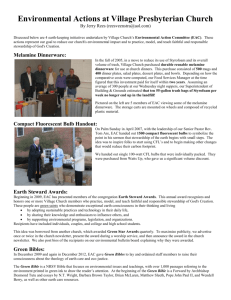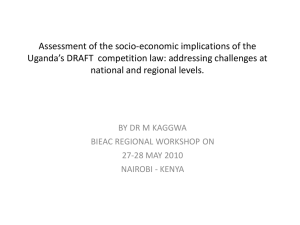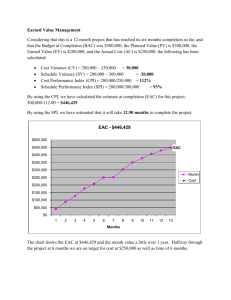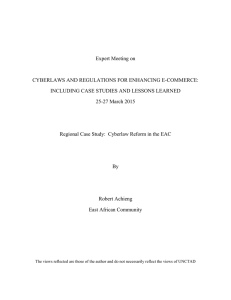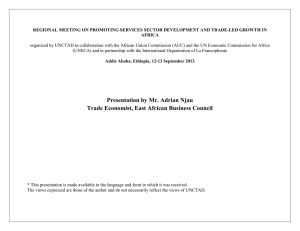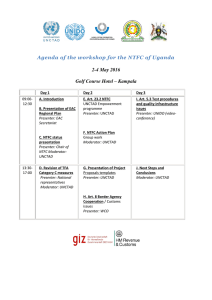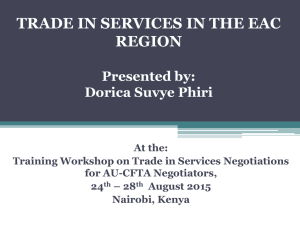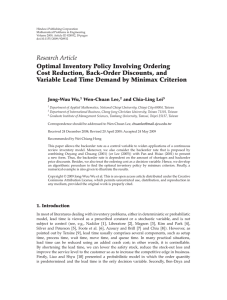Expert Meeting on CYBERLAWS AND REGULATIONS FOR ENHANCING E-COMMERCE:
advertisement
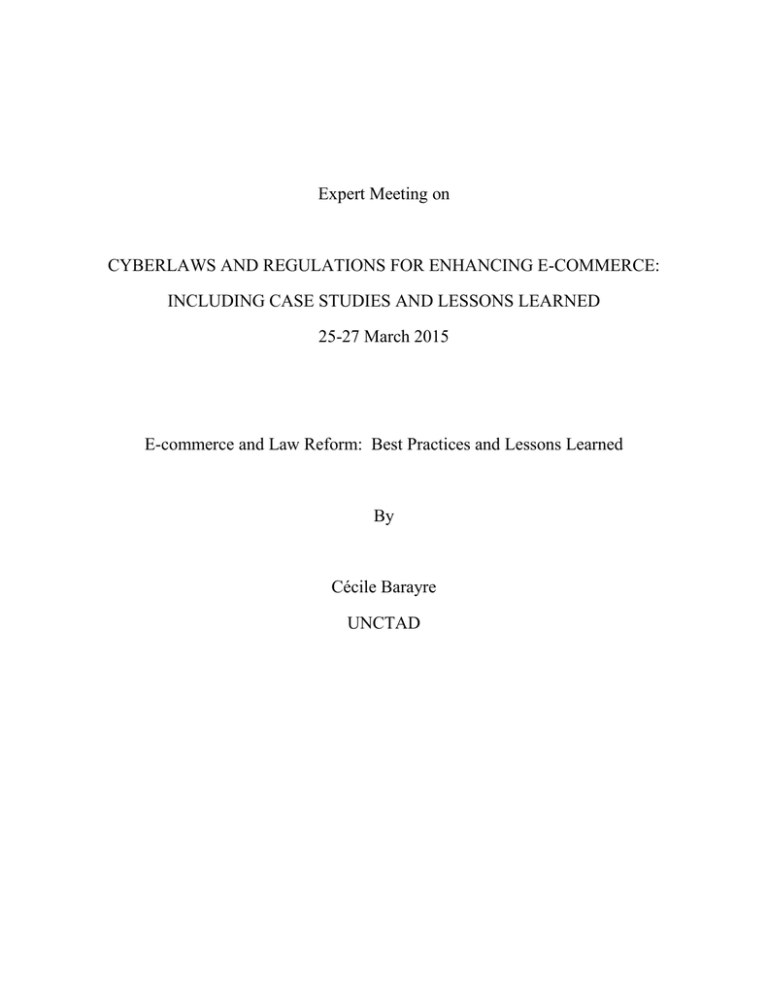
Expert Meeting on CYBERLAWS AND REGULATIONS FOR ENHANCING E-COMMERCE: INCLUDING CASE STUDIES AND LESSONS LEARNED 25-27 March 2015 E-commerce and Law Reform: Best Practices and Lessons Learned By Cécile Barayre UNCTAD To date, 60 countries in Africa, Asia and Latin America and the Caribbean have received technical assistance in various forms Awareness and build capacity workshops of policy and law makers, including parliamentarians; Online and face-to-face training courses on the “Legal Aspects of Ecommerce” following the TrainForTrade methodology : legal validity of etransaction, consumer protection, taxation, security, privacy, IPRs, content regulation; Over 2400 policy and law makers trained in 8 years in the ASEAN, EAC, ECOWAS, Latin America and the Caribbean. Reviews of national laws and regional agreements; Preparation of regionally harmonized legal frameworks and assistance in implementation at national level; Public and private roundtables; Comparative regional reviews on cyberlaw harmonization; Partners include: Programme funded by Finland, the Republic of Korea External evaluation in 2011 Regional integration plans: increased participation in regional/global markets and supply chains; e-government strategy; mobile commerce, cloud computing Differences among countries Legislation, capacity, resources, political situation Regional trade agreements/frameworks Civil law, common law countries (e.g. EAC) Hard versus soft agreement regional approach: a model law (e.g.ECOWAS) or a baseline text (e.g. EAC, ASEAN) to adapt to growing sophistication of ICTs Domestic omnibus law versus revising existing body of laws Lack of capacity of stakeholders and law enforcement bodies Staff turn over, change in the government authority and loss of key project focal points Source: UNCTAD. Commitment and ownership at highest level (e.g. EAC Task Force on Cyberlaws) – National and regional cyberlaw strategy Collaboration among regulatory/statutory authorities at national and regional levels - Inter-governmental coordination committee Public–private dialogue needed for legislation to be successfully enacted and enforced Trainees become promoters of the cyber law reform process Sharing of experience, restitution seminars Participation at national/regional workshop Training/briefing of national institutions, awareness-raising campaigns Detailed list of training and awareness-raising actions for key target group Policy and law makers, parliamentarians, law enforcement agencies, the private sector, civil society Comprehensive roadmap, milestones with agreed timelines and harmonization benchmarks Monitor developments Keep the momentum for Cyberlaw reform Source: UNCTAD. • Collection of cyberlaw data (annual surveys of legislations to Member States and through our partners) -ict4d@unctad.org • Analysis of legislation in specific areas to facilitate decisionmaking • Follow-up assistance to the EAC, ECOWAS, CARICOM countries • Requests from Bhutan, Madagascar, South Asia, etc. • Else? THANK YOU


